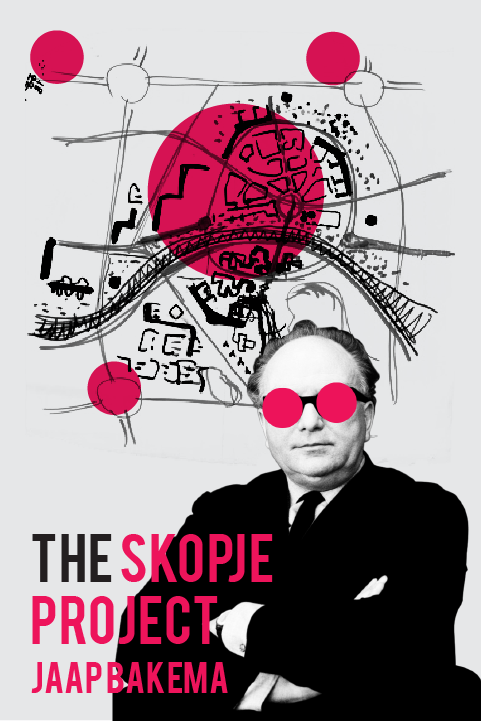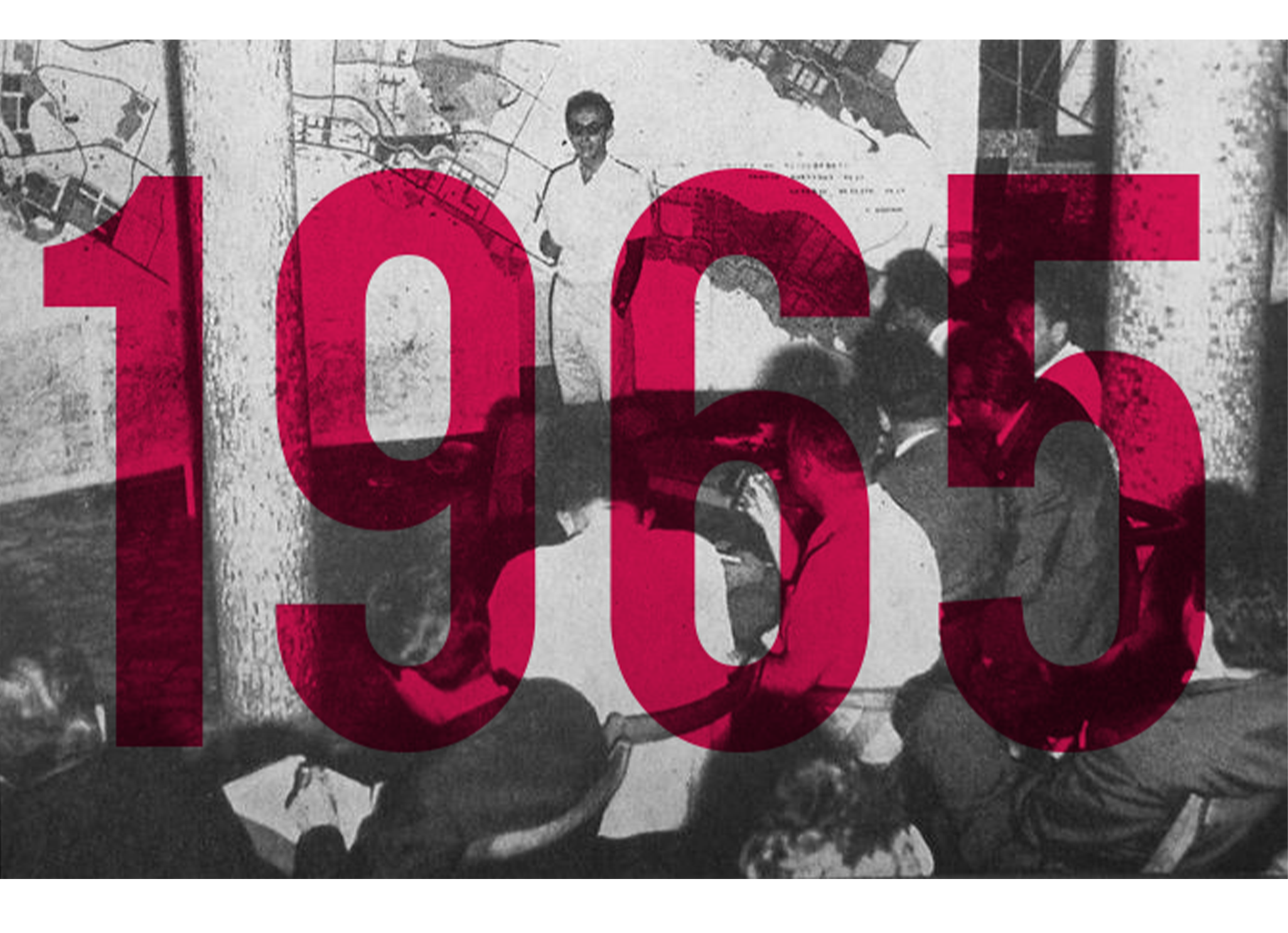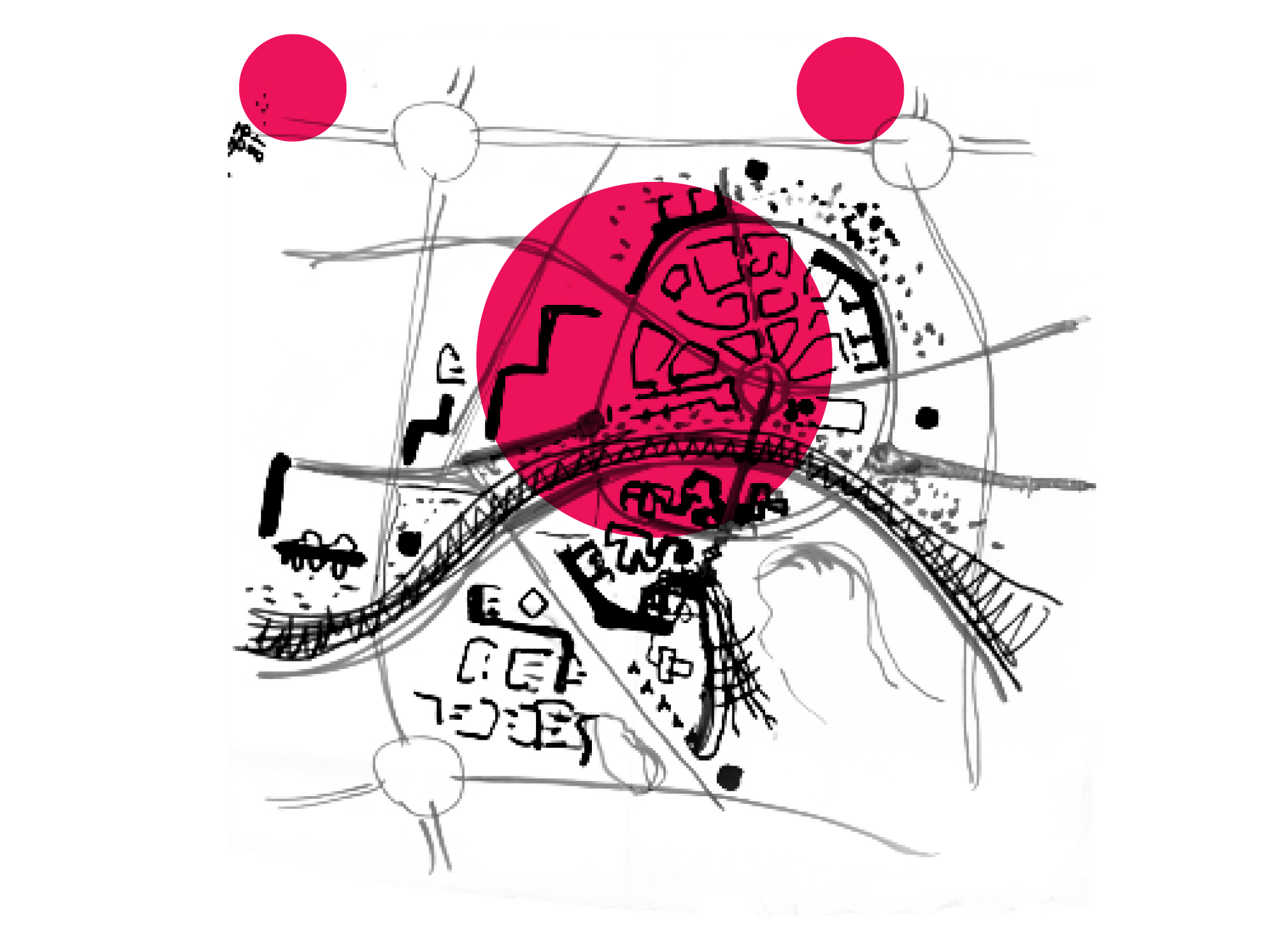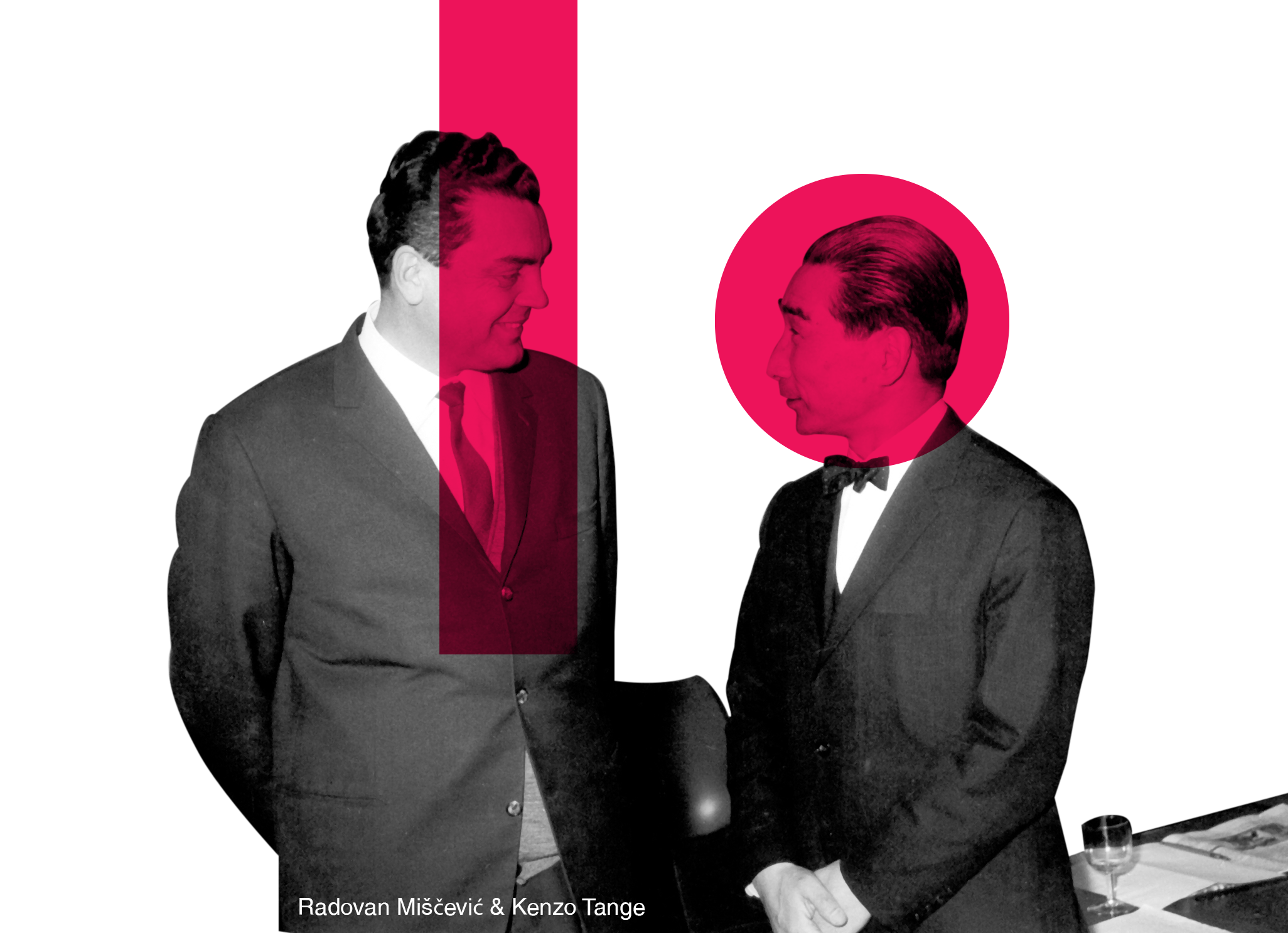WELCOME TO
THE
SKOPJE
PROJECT
On the morning of July 26, 1963, Skopje was struck by a devastating earthquake that left more than 80% of buildings in ruins. This unfortunate event was followed by an unprecedented effort by United Nations to reconstruct and redesign the city. The city of Skopje was to be considered an international symbol of solidarity as it was rebuilt from the ruins with the aid of almost 90 countries. It was a unique opportunity to demonstrate the ability of the International community led by the United Nations for a much larger endeavor of constructing the role model of the future city – the “world city”.
THE SPEAKERS
What if the reconstruction of Skopje happened today? What if, in the aftermath of the catastrophic disaster, the same unilateral call to solidarity occurred and the entire world came together in support of the city? What if leadership insisted on using this catastrophe as an opportunity to find new models for economic, infrastructural, political, and urban reconstruction? If that happened, what would architects, planners, policymakers, economists, sociologists, and other committed participants to reconstruction identify as the most pressing obstacles blocking a city from achieving recovery, unity, equity, and freedom? Based on the assumption that the fundamental ambition of the city is to enable freedom and prosperity for its citizens, we ask for each speaker to elaborated a view that addresses and defines the contemporary challenges that we must overcome and the future possibilities in order to enable freedom and prosperity for the citizens of a city. In essence, what are the potential new definition(s) for cities and the built environment?

Reinier de Graaf
OMA | AMO

Reinier de Graaf
OMA | AMO
Partner OMA | AMO
Reinier de Graaf (1964, Schiedam) is a Dutch architect and writer. He is a partner in the Office for Metropolitan Architecture (OMA) and the co-founder of its think-tank AMO. Reinier is the author of Four Walls and a Roof: The Complex Nature of a Simple Profession and the novel The Masterplan. He lives in Amsterdam.
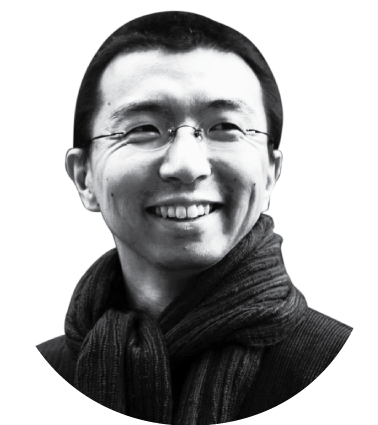
Sou Fujimoto
Sou Fujimoto Architects

Sou Fujimoto
SOU FUJIMOTO ARCHITECTS
SOU FUJIMOTO ARCHITECTS
Sou Fujimoto was born in Hokkaido in 1971. Graduated from the Department of Architecture, Faculty of Engineering at Tokyo University, he established Sou Fujimoto Architects in 2000. Among his recent renowned projects is the 1st prize for the 2014 International Competition for the Second Folly of Montpellier, France (“L’Arbre Blanc”). Additionally in 2015, 2017 and 2018, he won several international competitions with 1st prize invarious European countries. In Japan, he was selected as the Expo site design producerfor the 2025 Japan International Exposition (Osaka/Kansai Expo). In 2021, he wasselected as the designer Co-Innovation University (Tentative) in Hida Takayama city.His notable works include; “House of Music” (2021), “MARUHON makiart terrace(Ishinomaki Cultural Center)” (2021), “SHIROIYA HOTEL” (2020), “L’Arbre Blanc”(2019), “Serpentine Gallery Pavilion 2013” (2013), “House NA” (2011), “Musashino ArtUniversity Museum & Library” (2010), “House N” (2008) and many more.
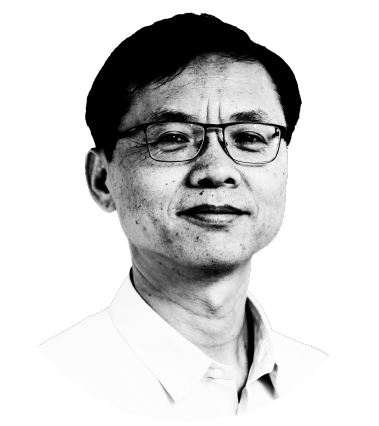
Zhongjie Lin
University of Pennsylvania
Weitzman School of Design

Zhongjie Lin
UNIVERSITY OF PENNSYLVANIA,
WEITZMAN SCHOOL OF DESIGN
UNIVERSITY OF PENNSYLVANIA, WEITZMAN SCHOOL OF DESIGN
Prof. Zhongjie Lin is a scholar and practitioner of urbanism. He is Associate Professor at Department of City and Regional Planning and Head of Urban Design Concentration at Weitzman School of Design, University of Pennsylvania. He is also a co-founding director of Futurepolis, an awarding-winning international planning and design consulting firm.
Dr. Lin’s research focuses on urban design, ecological urbanism, utopianism, and Asian architecture and urbanism. He is author or co-author of several books including Urban Design in the Global Perspective (2006), Kenzo Tange and the Metabolist Movement (2010), The Making of a Chinese Model New Town (2012), Vertical Urbanism (2018), and Rio de Janeiro (2019). In 2022, He co-curated the exhibition “Building in China: A Century of Dialogues on Modern Architecture.” He is completing a new book examining China’s contemporary urbanization through the lens of its massive new town movement.
Dr. Lin is recipient of many awards including Woodrow Wilson Fellowship (2012), Guggenheim Fellowship (2013), and an Abe Fellowship (2014). His work has also been recognized with three publication or research grants from the Graham Foundation in 2008, 2011, and 2019, as well as a New Researcher Award by the Architectural Research Centers Consortium in 2012.
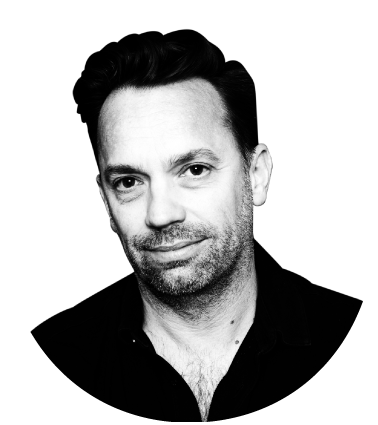
Dirk van den Heuvel
TU Delft Jaap
Bakema Research Center

Dirk van den Heuvel
TU DELFT JAAP
BAKEMA RESEARCH CENTER
TU DELFT JAAP BAKEMA RESEARCH CENTER
Dirk van den Heuvel is an Associate Professor with the chair of Architecture & Dwelling at TU Delft. He is also the Head of the Jaap Bakema Study Centre at Het Nieuwe Instituut, Rotterdam. His expertise is in postwar modern architecture and planning, and its related fields of architecture theory and history, cultural studies and discourse analysis. His most recent book publication is ‘Jaap Bakema and the Open Society’ (Archis, 2018).
Van den Heuvel is an editor to the publication series DASH – Delft Architectural Studies on Housing, the architecture theory journal Footprint, and the architecture research journal VLC Arquitectura. He was also an editor of the Dutch journal OASE (1993-1999).
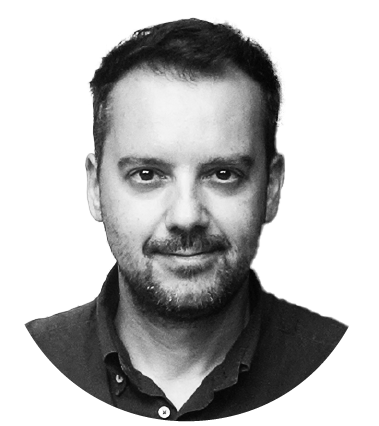
Konstantinos Tsiambaos
National Technical University of Athens

Konstantinos Tsiambaos
NATIONAL TECHNICAL UNIVERSITY
OF ATHENS
NATIONAL TECHNICAL UNIVERSITY OF ATHENS
Kostas Tsiambaos is an architect, Associate Professor in History & Theory of Architecture at the School of Architecture of the National Technical University in Athens (NTUA). He is Chair of do.co.mo.mo. Greece. He studied in Athens (NTUA) and New York (GSAPP Columbia University). His research has been published in international journals (The Journal of Architecture, ARQ, Architectural Histories, AΡΕΝΑ JAR) and collective volumes. His recent books include From Doxiadis’ Theory to Pikionis’ Work: Reflections of Antiquity in Modern Architecture (London & New York: Routledge, 2018 and 2020). In the fall semester of the academic year 2019-2020, he was a Stanley J. Seeger Visiting Research Fellow at Princeton University. Currently he works on a collective volume on animals in 20th century architecture.
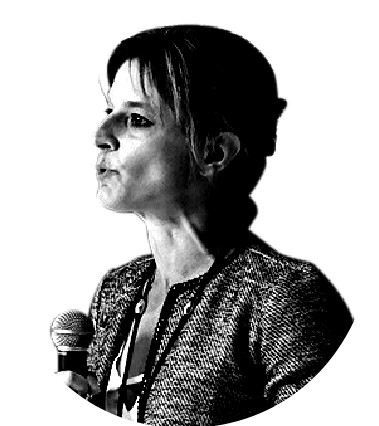
Ines Tolic
University of Bologna

Ines Tolic
UNIVERSITY OF BOLOGNA
University of Bologna
Prof. Tolic graduated in Architecture (2004) from the University Iuav of Venice and received a PhD in the History of Architecture and Urban History (2009) at the School of Advanced Studies in Venice. Her dissertation, dealing with the reconstruction of Skopje after the earthquake of 1963, was published in 2011). She has also written about post-war architecture and urban design in Japan (Milan 2008 and 2009), as well as about contemporary architecture in South Africa, understood as a reflection of a transitional process which began with the rise to power by Nelson Mandela (2010). Between 2010 and 2012, she has collaborated with the international research project Unfinished modernizations, Architecture and urban planning in former Yugoslavia and its successor states, sponsored within the EU Culture 2007-2013 program. Between 2010 and 2014 she was engaged in the Visualizing Venice project, promoted by the IUAV University in Venice, Duke University in Durham (NC), and Fondazione Venezia.
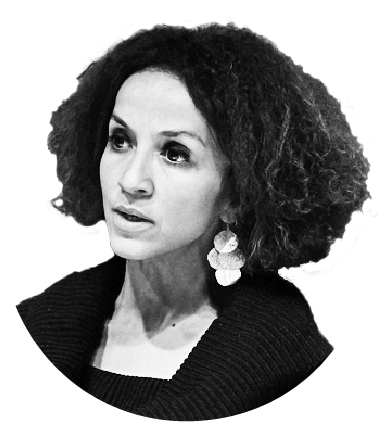
Samia Henni
Cornell University
College of Architecture, Art and Planning

Samia Henni
CORNELL UNIVERSITY
COLLEGE OF ARCHITECTURE, ART AND PLANNING
CORNELL UNIVERSITY COLLEGE OF ARCHITECTURE, ART AND PLANNING
Samia Henni is a historian, an instructor, and an exhibition maker of the built, destroyed, and imagined environments. Her work addresses questions of archives, colonization, wars, nuclear weapons, deserts, forced displacement, and gender. She teaches history of architecture and urban development at Cornell University’s College of Architecture, Art and Planning. She received her Ph.D. (with distinction, ETH Medal) in the history and theory of architecture from the gta Institute, ETH Zurich, Switzerland. She taught at Princeton University’s School of Architecture, ETH Zurich and the Geneva University of Art and Design. She was a Research Associate at Curatorial/Knowledge PhD Program, Department of Visual Cultures, Goldsmiths, University of London. She received her M.Sc. in Architecture from the Accademia di Archittetura di Mendrisio, Universita della Svizzera Italiana. She also studied at the former Berlage Institute in Rotterdam and at the Ecole polytechnique d’architecture et d’urbanisme in Algiers. Samia was the inaugural Albert Hirschman Chair (2021-22) for Identity Passions Between Europe and the Mediterranean at the Institute for Advanced Study in Marseille; and a Visiting Professor (Fall 2021) at the Institute of Art History at the University of Zurich.
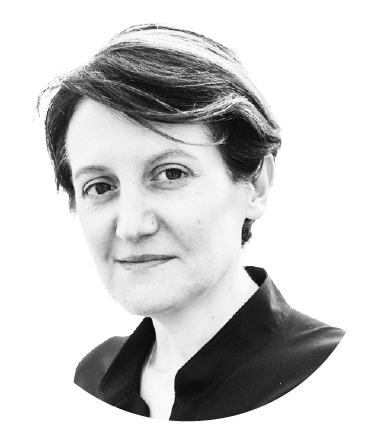
Lucia Allais
Columbia University
GSAPP

Lucia Allais
COLUMBIA UNIVERSITY
GSAPP
COLUMBIA UNIVERSITY GSAPP
Lucia Allais is an architectural historian of the modern period. She works on architecture and internationalism and institutions; the technical and philosophical history of materials; the participation of buildings and design actors in political culture and global governance; architecture’s historiography, and epistemologies of time. Her first book, Designs of Destruction: The Making of Monuments in the Twentieth Century (University of Chicago Press, 2018) described how a new definition of “the monument” arose from various plans within liberal internationalist organizations to protect and salvage famous building from destruction in the middle of the 20th Century. This includes the making of lists and maps of monuments “not to be bombed” by American art historians during World War II, the decolonization of museums in the global South at the hands of organizations from the League of Nations to UNESCO, and the salvage of massive building complexes, such as the temples of Abu Simbel, by global multidisciplinary consortia.
Allais has published a number of essays on related themes. “Architecture and Mediocracy at Unesco House” (in Marcel Breuer: Building Global Institutions, ed. Massey and Berdgoll, Lars Mueller, 2018) describes the fraught collaborative design of the UNESCO headquarter in Paris. “The Real and the Theoretical, 1968” (in Perspecta 42, 2010) uncovers a never-realized plan for a “Harlem school” produced by Peter Eisenman of the Institute for Architecture and Urban Studies (IAUS) in collaboration with the New York Urban League. “Rendering: On Experience and Experiments” (in Design Technics, ed. May and Çelik Alexander, Minnesota: 2021) is an essay-length history of rendering informed by changing theories of experience, media and technology. She recently published an introduction to three translations of texts by Alois Riegl, “Mood for Modernists” (in Grey Room 80: Winter 2020).
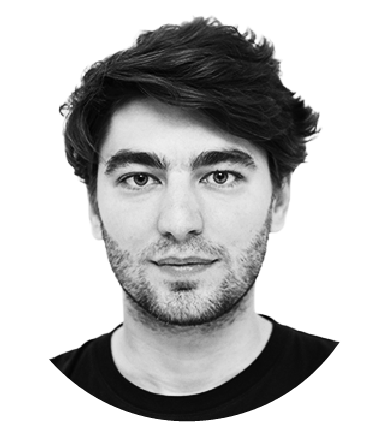
Nikos Katsikis
TU Delft

Nikos Katsikis
TU DELFT
TU DELFT
Nikos is an urbanist working at the intersection of urbanization theory, design and geospatial analysis. His research seeks to contribute to a geographical understanding of the socio-metabolic relations between agglomerations and their operational landscapes. He is Assistant Professor at the Urbanism Department, TU Delft and Researcher at Urban Theory Lab – Chicago, and ETH, Zurich. Previously he was Research Tutor at the Royal College of Arts, London and Postdoctoral Fellow at the University of Luxembourg. He holds a Doctor of Design from Harvard Graduate School of Design (GSD), where he has served as Instructor in Urban Planning and Design and was on the editorial board of the New Geographies journal and co-editor of New Geographies 06: Grounding Metabolism (Harvard University Press, 2014). His recent work includes contributions in Harvard Design Magazine, and MONU; book chapters in Implosions / Explosions: Towards a Study of Planetary Urbanization (ed. Neil Brenner); Doing Global Urban Research (ed. Michael Hoyler); The Horizontal Metropolis (ed. Paola Vigano); the edited volume Manhattan: Grid for Ordering an Island (with Joan Busquets), and Positions on Emancipation (with Florian Hertweck); and the forthcoming book (with N. Brenner), Is the world urban? Towards a Critique of Geospatial Ideology (ACTAR 2023).
MODERATORS
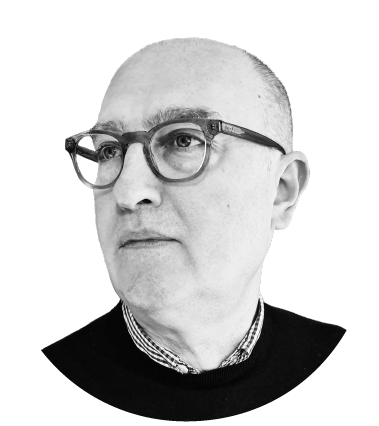
Ognen Marina
Faculty of Architecture
University Ss. Cyril and Methodius, Skopje

Ognen Marina
FACULTY OF ARCHITECTURE
UNIVERSITY SS. CYRIL AND METHODIUS, SKOPJE
FACULTY OF ARCHITECTURE, UNIVERSITY SS. CYRIL AND METHODIUS
Ognen Marina, PhD is an architect and holds MA and PhD in Architecture and Urbanism. Since 2017 he is the Dean of Faculty of Architecture, University “SS. Cyril and Methodius” in Skopje, North Macedonia. His main field of interest is development and implementation of novel strategies in architecture and sustainable urban development. He is particularly interested in use of digital tools for development of models of urban form, modelling processes of urban transformation and urban innovation through hybridization in the context of transitional societies, urban resilience and climate change mitigation. He is active in promotion of novel tools in development of urban environment that could enhance better citizens’ participation and cooperation with decision makers and designers. He is author of books related to analysis, assessment and modeling of urban development and its impact on the cities and society including “Inclusive/Exclusive Cities” (Eds. O. Marina, A. Armando, 2016), Projects for an Inclusive City (Eds. O. Marina, A. Armando, 2015) and “3D City Models and Urban Information: Current Issues and Perspectives” (Rolland Billen, O. Marina, et all. EDP Science, Les Ulis Cedex A, France, 2014). He was a leading expert for development of “Study for development of new Social Housing in Municipality Shuto Orizari” in 2020 and currently is a member of the project team that works on development of Planning Program for new General Urban Plan 2022-2032 for City of Skopje.
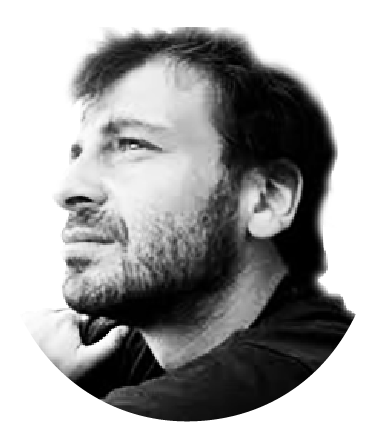
Alessandro Armando
Departmet of Architecture and Design
Politecnico di Torino

Alessandro Armando
DEPARTMET OF ARCHITECTURE AND DESIGN
POLITECNICO DI TORINO
DEPARTMET OF ARCHITECTURE AND DESIGN POLITECNICO DI TORINO
Alessandro Armando, architect, is Associate Professor at the Department of Architectural and Design (DAD) of the Politecnico di Torino since 2011, where he teaches Architectural and Urban Design. He is also the Coordinator of the Msc Degree Programme “Architecture Construction City” and a member of the Board of the Doctoral programme DASP (“Architecture. History and Project”) at the same Politecnico. His current research activity focuses mainly on the theory of the architectural project. He is founder and member of the editorial board of “Ardeth” (Architectural Design Theory) magazine, and he is currently the editor of “Rivista di Estetica”, 2, 2019 (The Sciences of Future). In his professional practice as an architect, he is a partner of the DAR Architettura office, with M. Di Robilant and G. Durbiano. Among his publications: Teoria del progetto architettonico (2017); Rome: Carocci (with G. Durbiano); Watersheds. A Narrative of urban recycle (2015), Guangzhou: Sandu Publishing (with M. Bonino and F. Frassoldati); La soglia dell’arte: Peter Eisenman, Robert Smithson e il problema dell’autore dopo le nuove avanguardie (2009) Torino: SEB 27.

Mitesh Dixit
Politecnico di Torino | DOMAIN Office

Mitesh Dixit
POLITECNICO DI TORINO | DOMAIN OFFICE
POLITECNICO DI TORINO | DOMAIN OFFICE
Mitesh Dixit is an architect and political geographer, and the founder of DOMAIN Office, an architecture and urbanism studio based in Turin, Italy. Dixit’s work focuses on the intersection of design with government policy, society, and culture. Dixit’s current research investigates lithium as a critical component in the spatial transformation of a post carbon environment, and to reconceptualize the territories that enable the production and consumption of lithium-ion batteries. Previous research has explored the crafting of region and border conditions in the Balkans, The American Midwest, Vietnam, India, China, and along the US-Mexico border, tracing the effects of ideology in the transformations of the built environment. Dixit has taught at the TU Delft in the Netherlands, The Maxwell School of Citizenship & Public Affairs and the School of Architecture at Syracuse University, the Faculty of Architecture in Skopje, N. Macedonia, The University of American College Skopje, and Columbia University’s Graduate School or Architecture Planning, and Preservation. Throughout 2016, Dixit lectured internationally, on behalf of the US Department of State.
PROGRAM
The Skopje Project Conference will be held on the occasion of 60 years anniversary from the Skopje Earthquake and 110 years from the birth of Japanese architect Kenzo Tange, bringing in Skopje the world renewed architects, experts in urban planning and researchers celebrating the ideas and values of solidarity and knowledge of architecture and urban planning in creation of better societies and cities. Sixty years after the devastating earthquake in Skopje, the most prominent world architects, researchers and scholars will be again in Skopje to talk about the power of architecture and urban design as the drivers of reconstruction of the societies and cities through the Skopje Project.
The conference program will be organized in three main sessions: Past Project, Present project and Future project. Past project will discuss the knowledge, theories, practices and lesson learned from the projects of the architects, urban planners and experts that have been involved in the post-earthquake reconstruction of Skopje. Present project will explain the understanding of the contemporary condition of cities and architecture throughout the world through the practices of the leading world contemporary architects and design studios. It will present the ideas that are shaping the world of today, creating the future urban legacies, but also being the contexts for the future social and urban development.
Future project will explore the novel theories and new approaches in better understanding of the future potentials and conditions of our societies and cities discussing the cutting-edge research of young researchers and scholars from the most prominent Universities throughout the world.
Welcome
Wednesday,
June 7th, 2023
June 7th, 2023
Faculty of Architecture
08:00-08:30
Welcome and arrival of participants
08:30-08:40
Welcome note by the Dean of the Faculty of Architecture,
UKIM in Skopje
08:40-08:50
Welcome note by the Rector of
the University “Ss. Cyril and Methodius” in Skopje
08:50-08:55
Opening note by H.E. UNDP representative
in North Macedonia
08:55-09:00
Opening note by H.E. Ambassador of Japan in North Macedonia
Past Project
Wednesday,
June 7th, 2023
June 7th, 2023
Faculty of Architecture
09:00-10:30
Keynote lectures – Part I
Zhongjie Lin (UPenn)
“CITY AND RUINS”
Ines Tolic (University of Bologna)
“ERNEST WEISSMANN’S WORLD CITY”
11:00-12:30
Keynote lectures – Part II
Dirk van den Heuvel (TU Delft)
“BUILDING TOWARDS AN OPEN SOCIETY: JAAP BAKEMA AND THE GEOPOLITICS OF ARCHITECTURE”
Kostas Tsiambaos (NTU Athens)
“DOXIADIS’S DATA-DRIVENNESS”
12:30-13:30
Panel
Moderators: Ognen Marina
& Alessandro Armando
Present Project
Wednesday,
June 7th, 2023
June 7th, 2023
Faculty of Architecture
15:00-16:00
Keynote lecture
Sou Fujimoto (Sou Fujimoto Architects)
(opening remarks: Ognen Marina)
16:00-17:00
Panel
Moderator: Ognen Marina
17:00-17:30
Final remarks and conclusion of Day 1
Future Project
Thursday,
June 8th, 2023
June 8th, 2023
Faculty of Architecture
09:00-11:30
Keynote lectures – Part I
Samia Henni (Cornell University)
“WARS, BUILT AND DESTROYED ENVIRONMENTS”
Nikos Katsikis (TU Delft)
“BEYOND THE OPERATIONAL LANDSCAPE”
Lucia Allais (Columbia GSAPP)
“SANDBAGS”
12:00-13:00
Panel
Moderators: Mitesh Dixit
& Alessandro Armando
Present Project
Thursday,
June 8th, 2023
June 8th, 2023
Faculty of Architecture
14:00-15:00
Keynote lecture
Reinier de Graaf (OMA/AMO)
(opening remarks: Mitesh Dixit)
15:30-16:30
Panel
Moderator: Mitesh Dixit
17:00-17:30
FINAL REMARKS AND CONCLUSION OF DAY 2
have questions?
contact us







